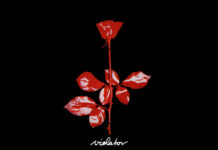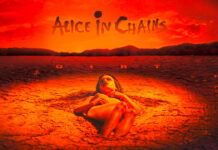Counting Crows’ “August and Everything After” emerged amidst a transformative period in pop music. As bands like Motley Crue and Poison faded, grunge rock ascended to dominance.
Distinguishing themselves, Counting Crows eschewed heavy guitar distortion, favoring acoustic guitars, mandolins, and electric pianos. Despite this musical departure, their lyrics resonated with the youth of the early ‘90s.
Surprisingly, “August and Everything After” delved into themes akin to their grunge contemporaries, notably Nirvana’s “In Utero,” released just a week later.
Lead singer Adam Duritz’s introspective lyrics, epitomized in their debut single “Mr. Jones,” reflected universal sentiments. While Kurt Cobain’s angst-ridden cries opened “In Utero,” Duritz crooned, “Believe in me, Help me believe in anything, ‘cause I wanna be someone who believes”.
Though critics initially panned the album as “Sluggish and meandering,” the Counting Crows became emblematic of early ‘90s music. Despite critiques of Duritz’s unconventional appearance, their pop harmonies and ballads captivated college-aged women.
“Mr. Jones”, the first single from August, is about the phenomenon of being a nobody – the everyman who dreams of being famous. When you’re an average person, being rich and famous feels like the answer to everything. If you’re a lonely nobody, you can’t be lonely if everyone loves you, right?
Duritz writes his lyrics looking at these thoughts from the other side. While “Mr. Jones” comes from the Crow’s first album and they have yet to experience the fame referenced in the song, he has witnessed the harsh realities of fame and realizes what comes with it. The lyrics of “Mr. Jones” become haunting and ironic.
The follow-up single, “Round Here,” begins with a guy walking out the front door of his house, leaving behind a woman. However, the more he leaves people behind in his life, the more he feels like he’s leaving himself behind as well, and the less substantial he feels about himself. This insight was shared by Duritz when Counting Crows appeared on VH1’s Storytellers.
“Round Here” paints a perfect emotional picture of what it’s like to take a turn in your life, to start something new. Duritz’s words express the confidence he had during the early days of the band, but it’s overshadowed by the internal insecurities that wrestle with public perceptions of fame.
He sings, “Where no one notices the contrast of white on white,” offering a unique perspective on the newfound fame the band experienced in the early to mid-90s.
August and Everything After offers a refreshing contrast to the “Seattle Sound” of the early 1990s, showcasing The Crows’ homage to sixties and seventies folk rock in their debut album.
This record delves into themes of growth, life’s complexities, heartbreak, and solitude, resonating with listeners on a deeply relatable level.
For those who haven’t revisited their CD collection lately, this album is a must-listen. Its jangle pop guitars and timeless appeal warrant consideration among the greatest albums of all time, though it often gets overlooked in favor of its contemporaries.
Must listen to tracks:Round Here, Omaha, Mr. Jones, Anna Begins, Rain King, Raining in Baltimore, A Murder Of One.
Purchase “August And Everything After” on Amazon.





